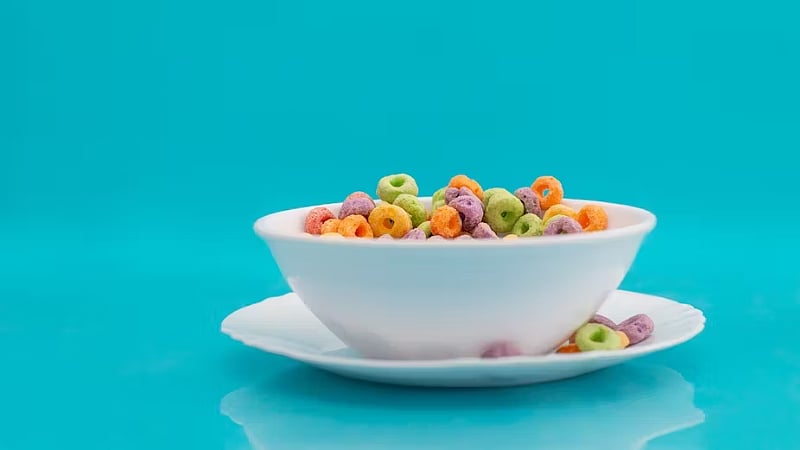Childhood overweight and obesity are a growing public health challenge in South Africa. In 2016, 13% of the country’s children were reported to be obese. This is predicted to double by 2030.
This problem has been linked to the regular consumption of calorie-dense foods high in sugar, salt and fat. South African children are growing up in a food environment that tends to cause obesity.
One of its key features is intense marketing of unhealthy food and beverages, using various channels and appealing strategies. Misleading health and nutrition claims are sometimes made.
Children are considered lucrative consumers because they can sometimes buy food themselves, influence their parents’ food purchases (they have “pester power”, for one thing), and are future consumers.
Marketers use several strategies that children find appealing, such as cartoon characters, brand mascots, bright colours, colourful packages, catchy songs and slogans.
Although there is no specific regulation of marketing to children in South Africa, the Consumer Protection Act 58 of 2008 has important provisions that guide the marketing of goods and services. The law prohibits false, deceptive marketing.
As a researcher into children’s rights and nutrition I coauthored a recent paper examining how the Consumer Protection Act could be used to address the misleading marketing of unhealthy foods and beverages to children.
In our view, the South African consumer protection legal framework has the necessary scope to address misleading forms of marketing of unhealthy foods to children. But there needs to be better enforcement.
Health claims: not always the full package
A common strategy in food marketing is the use of misleading health or nutrition claims. These are often written (“contains vitamin C”, “high fibre”, “boosts immunity”, “supports brain health”), or implied by images of fruits and vegetables on the packaging of products.
Some studies in South Africa have demonstrated the misleading use of these claims in television and magazine advertisements and food packages, including products meant for children.
For instance, fruit juices often claim to be rich in vitamin C, but they have a high sugar content. Dairy products typically boast a high calcium content, but are also high in added sugar. Breakfast cereals frequently highlight their fibre content, despite being ultra-processed and containing a high amount of total carbohydrates and added sugar.
Packaged foods often contain nutrition labels, but the printed words are small and usually obscured by the “healthy” claims. Those are positioned more prominently to capture the attention of the consumer.
Health and nutrition claims can strongly influence purchasing decisions, especially in the South African context. Research has shown that many South African consumers do not read nutrition labels on packaged foods.
What the law says
Firstly, the Consumer Protection Act recognises children as vulnerable or disadvantaged consumers who deserve special protection (section 3(1)(b)(iii). This is because they have limited capacity to understand marketing strategies or defend themselves against their persuasive effects.
Secondly, the Consumer Protection Act, in sections 29 and 41, prohibits the marketing of goods in a way that is reasonably likely to imply a false or misleading representation of facts such as their ingredients, benefits and qualities.
Thirdly, the Consumer Protection Act provisions do not require a consumer to show that they were actually misled by the claim or that children’s health was negatively affected by consuming the food product. It is enough that it has been marketed in a manner that is reasonably likely to mislead children or their parents or caregivers into buying the product.
Consumers have various ways to seek redress for misleading marketing. These include the Consumer Goods and Services Ombud and the Advertising Regulatory Board, the National Consumer Commission, the National Consumer Tribunal and the courts.
However, delays and poor compliance with decisions can put consumers off.
Food for thought: the way forward
Mandatory front-of-pack labels are needed in South Africa. They should be easy to understand and highlight nutrients of concern – salt, fat, sugar and artificial sweeteners – to reflect the overall nutritional profile of food products. They can also override the misleading “health halo” effect generated by health or nutrition claims.
The public should support the Draft Regulation R3337 Relating to the Labelling and Advertising of Foodstuffs made under the Foodstuffs, Cosmetic, and Disinfectant Act 54 of 1972. It specifically prohibits marketing unhealthy food to children.
The act needs to be used more and this requires much greater consumer activism.
Dispute mechanisms could be stronger and the processes could be streamlined to encourage consumer participation.
The government and public interest organisations need to create greater public awareness of consumer rights.
Aisosa Jennifer Omoruyi is a Research Fellow at the Dullah Omar Institute, University of the Western Cape, which receives funding from the Global Center for Legal Innovation on Food Environments at the O’Neill Institute for National and Global Health Law, Georgetown University Law Center, Washington, DC.
By Aisosa Jennifer Omoruyi, Research fellow, University of the Western Cape


